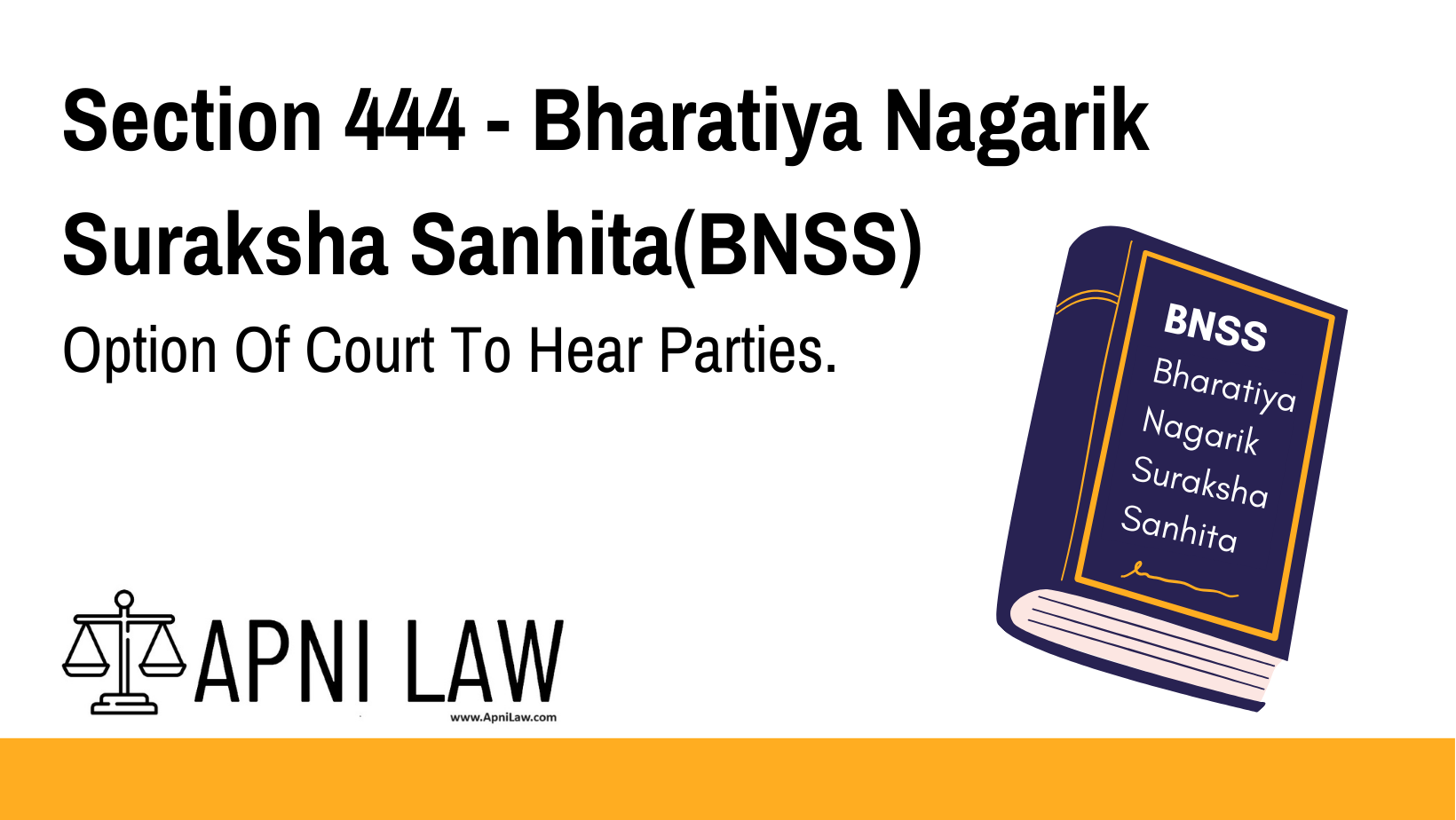Code: Section 444 BNSS
Section 444
Save as otherwise expressly provided by this Sanhita, no party has any right to be heard either personally or by an advocate before any Court exercising its powers of revision; but the Court may, if it thinks fit, when exercising such powers, hear any party either personally or by an advocate.
Explanation of Section 444 BNSS
Section 444 establishes the discretionary nature of hearing parties when a Court is exercising its powers of revision. Generally, no party has an automatic right to be heard, either in person or through an advocate, when the Court is reviewing or revising a case. However, the Court has the discretionary power to hear any party, if it deems it necessary or appropriate.
Key Provisions:
- No Automatic Right to be Heard:
- By default, no party has an inherent right to be heard when a Court is exercising its powers of revision under the BNSS. This means that the Court does not need to listen to parties unless specifically required by the law or unless the Court decides otherwise.
- Discretionary Power of the Court:
- While there is no automatic right to be heard, the Court has the discretion to allow a party to be heard if it feels that it is necessary for the case. This can include allowing the party to appear personally or to be represented by an advocate.
- Exception for Specific Provisions:
- If there are any other specific provisions in the BNSS (other than this section) that provide for the right to be heard, those will take precedence.
Illustration
Example 1: Court Chooses to Hear a Party
A Court is revising a case, and although the parties do not have an automatic right to be heard, the Court decides that it would be beneficial to hear the arguments of the accused. The Court allows the accused to present their case through an advocate before proceeding with its revision.
Example 2: Court Does Not Hear a Party
In another case, the Court is revising a decision but decides that there is no need to hear the parties personally or through an advocate. The Court proceeds with the revision based on the records and does not grant any party the opportunity to present additional arguments.
Common Questions and Answers on Section 444 BNSS
1. Do parties always have the right to be heard in revision cases?
- Answer: No, parties do not have an automatic right to be heard in revision cases. The Court may choose to hear the parties if it thinks fit, but it is not obliged to do so.
2. Can a party be represented by an advocate during revision?
- Answer: Yes, if the Court allows it, a party can be represented by an advocate during a revision, even though there is no automatic right to be heard.
3. Is there any exception to the rule in Section 444?
- Answer: Yes, if another provision in the BNSS explicitly grants the right to be heard in revision, that provision will take precedence over Section 444.
Conclusion
Section 444 allows the Court flexibility in determining whether or not to hear parties when it is exercising its powers of revision. While parties do not automatically have the right to be heard, the Court can choose to hear them if it deems it necessary, ensuring that the revision process is fair and just.











